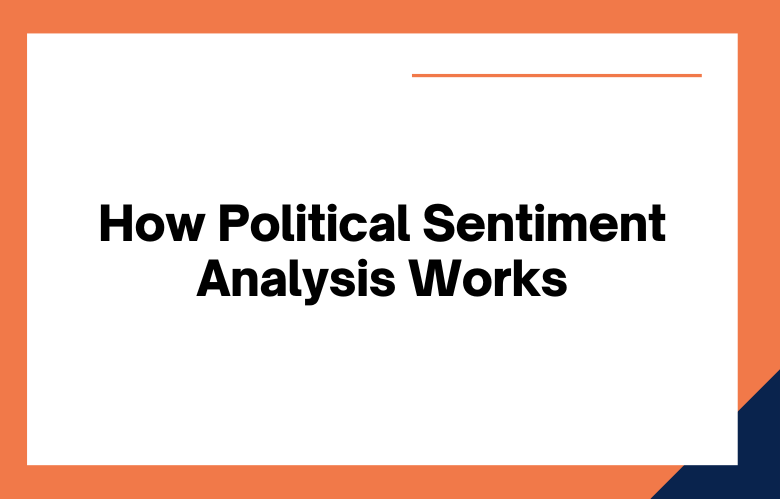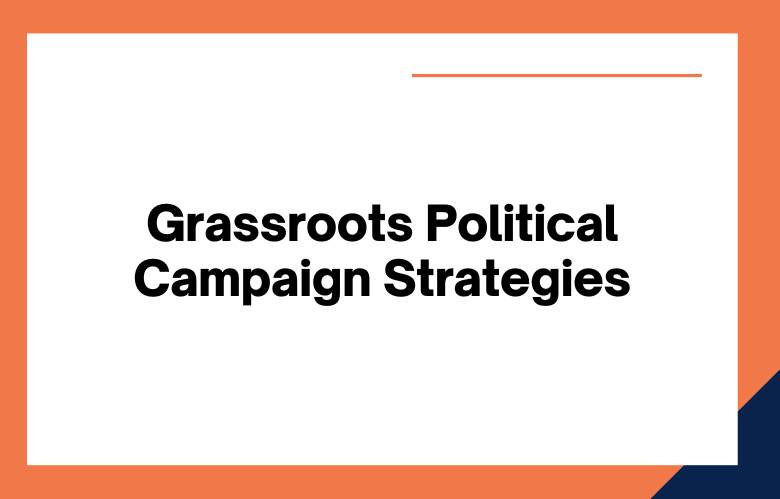In the digital era, political campaigns increasingly rely on artificial intelligence (AI) to gain insights into voter behavior, streamline operations, and tailor communications. However, this reliance brings to the fore critical concerns about privacy preservation. As campaigns harness vast troves of data, the imperative to employ privacy-preserving AI practices becomes paramount to protect sensitive voter information and maintain public trust.
Privacy-Preserving AI for Political Campaigns: Best Practices
Privacy-preserving AI encompasses technologies and methodologies designed to safeguard personal data while allowing AI models to learn and make predictions.
Techniques such as federated learning, where models are trained across multiple decentralized devices or servers without exchanging raw data, and differential privacy, which adds noise to data in a way that prevents the identification of individuals, are becoming increasingly relevant.
Best practices for integrating privacy-preserving AI into political campaigns involve a commitment to transparency about data usage, adherence to strict data minimization principles, and implementing robust security measures to prevent unauthorized access to data.
Moreover, it necessitates ongoing dialogue with stakeholders, including the public and regulatory bodies, to ensure alignment with societal values and legal standards.
Incorporating privacy-preserving AI into political campaigns not only addresses ethical and legal imperatives but also strengthens the bond of trust between political entities and the electorate. It underscores a commitment to respecting individual privacy rights while leveraging the power of AI to engage voters and shape campaign strategies effectively.
- Key Takeaways
- Importance of Privacy in Campaigns
- AI’s Impact on Political Elections
- Leveraging AI for Voter Education
- Safeguarding Elections with AI
- AI Strategies for Voter Awareness
- Ensuring Privacy with AI Technologies
- Best Practices for Privacy-Preserving AI
- Implementing AI Solutions in Campaigns
- Maintaining Trust through Transparency
- Closing Thoughts
- Frequently Asked Questions
- What is the significance of privacy in political campaigns?
- How does AI influence political elections?
- How can AI be leveraged for voter education purposes?
- What are the best practices for implementing privacy-preserving AI solutions in campaigns?
- Why is maintaining trust through transparency essential when utilizing AI technologies in campaigns?
In political campaigns, integrating privacy-preserving AI technologies, bots, election information, election offices, and voter groups marks a pivotal shift. Safeguarding sensitive data while enhancing campaign strategies, including election campaigns and political advertising, starkly contrasts traditional methods.
Leveraging AI to analyze voter sentiments and preferences without compromising privacy is revolutionizing campaign operations. This innovative approach ensures efficient targeting and messaging customization while upholding data security standards. By embracing privacy-preserving AI for political campaigns, organizations can balance insightful analytics and ethical data handling.
Key Takeaways
- Privacy is Paramount: Maintaining privacy in political campaigns is crucial for building trust with voters and protecting sensitive information.
- AI’s Role in Elections: AI can revolutionize political campaigns by enhancing efficiency, targeting voters effectively, and analyzing vast amounts of data.
- Empowering Voters: Utilize AI to educate voters on important issues, candidates’ platforms, and voting processes to promote informed decision-making.
- Security Measures: Implement AI tools to safeguard elections against cyber threats, misinformation, and manipulation to ensure fair and transparent democratic processes.
- Proactive Awareness: Use AI strategies to increase voter awareness, engagement, and participation through personalized outreach and tailored communication.
- Privacy Guidelines: Adhere to best practices for privacy-preserving AI, such as data anonymization, encryption, and user consent, to uphold ethical standards and legal compliance.
Importance of Privacy in Campaigns
Protecting Voter Data
Ensuring privacy in political campaigns is crucial to protect voter data from unauthorized access or misuse.
AI technologies play a significant role in modern campaigns, handling vast amounts of sensitive information that must be safeguarded.
Ethical Implications
Using AI in campaigns raises ethical implications, especially regarding the manipulation of information and potential biases in targeting voters, election officials, and the state.
Maintaining ethical standards is essential for election officials to uphold the integrity of the electoral process.
Transparency in AI Technologies
Transparency in how AI technologies operate within campaigns is vital for building trust with voters and election officials.
AI’s Impact on Political Elections
Enhanced Voter Engagement
AI technology has significantly transformed how political campaigns and election officials interact with voters. By utilizing AI, campaigns can analyze vast amounts of data to tailor messages and strategies to specific demographics.
Campaigns can now micro-target potential supporters based on their online behavior, preferences, and interests. This personalized approach enhances voter engagement and increases the effectiveness of campaign messaging.
Benefits of AI Integration
- Improved Targeting: AI enables campaigns to target individuals with precision, ensuring messages reach the right audience.
- Data Analysis: AI processes massive datasets quickly, providing valuable insights for strategic decision-making.
- Efficiency: Automation through AI streamlines campaign operations, saving time and resources.
The integration of AI in political campaigns offers numerous advantages. It optimizes resource allocation, enhances communication strategies, and boosts overall campaign efficiency.
Challenges in AI Adoption
Despite its benefits, integrating AI into political campaigns comes with challenges for officials. One primary concern is the ethical use of data gathered through AI algorithms.
Ensuring transparency and accountability in data collection and analysis is crucial to maintaining public trust. There are concerns about potential biases in algorithmic decision-making that could impact the fairness of elections.
Shaping the Future of Campaigning
The role of AI in shaping the future of political campaigning is undeniable. As technology advances, campaigns will rely more on AI for voter outreach, sentiment analysis, and predictive modeling.
Leveraging AI for Voter Education
Voter Education
AI plays a crucial role in effectively educating voters about candidates’ platforms. Using data analysis, AI tools can tailor information based on individual preferences. For example, these tools can provide detailed insights into each candidate’s stance on various issues.
Advantages of AI Tools like Jennifer
One significant advantage of using AI-powered tools like Jennifer is the ability to provide accurate and detailed information to voters. These tools can analyze vast amounts of data quickly and efficiently, ensuring voters have access to reliable information. AI tools can help combat misinformation spread by bad actors during campaigns.
Enhancing Voter Awareness and Engagement
AI’s role in enhancing voter awareness and engagement during political campaigns is undeniable. AI can help voters stay informed about upcoming elections, candidates, and critical issues through personalized recommendations and targeted messaging. This customized approach increases voter engagement and encourages participation in the democratic process.
Safeguarding Elections with AI
Detecting Misinformation
AI plays a crucial role in safeguarding elections by detecting and combating misinformation effectively. By utilizing advanced algorithms, AI technologies can swiftly identify and flag deceptive content that aims to manipulate public opinion during political campaigns. These systems analyze vast amounts of data to distinguish between authentic information and false narratives, thereby ensuring the integrity of the electoral process.
Preventing Spread of False Information
One significant benefit of AI in safeguarding elections is its ability to prevent the spread of false information across various online platforms. Through machine learning models, AI can track the dissemination of misleading content and take proactive measures to limit its reach. By promptly identifying and addressing misinformation, AI helps maintain transparency and trust in the electoral system, ultimately preserving the democratic principles of fair and unbiased elections.
Regulating AI for Fair Elections
As technology continues to evolve, there is a growing need for legislative measures to regulate the use of AI in political campaigns. State election officials are exploring potential regulations that would govern the deployment of AI tools to ensure fair and secure elections. By establishing guidelines for the ethical use of AI in electoral processes, lawmakers aim to mitigate risks associated with algorithmic bias and unauthorized data manipulation, thus upholding the integrity of democratic institutions.
AI Strategies for Voter Awareness
Targeted Outreach
AI-powered tools enable political campaigns to tailor messages based on specific voter groups and demographics. By analyzing election information and voter behavior, campaigns can create personalized content to resonate with different audiences. This targeted approach enhances voter engagement and encourages citizens to participate in the electoral process.
Data-Driven Decision Making
Utilizing AI algorithms allows campaigns to gather insights on voter groups and their preferences. By understanding the views and concerns of the electorate, political parties can address critical issues effectively. These data-driven decisions ensure that campaign efforts align with the target audience’s priorities, leading to a more impactful outreach strategy.
AI technology empowers political campaigns to optimize their messaging strategies based on real-time feedback and responses from voters. By analyzing data on voter interactions, campaigns can refine their messaging to resonate better with the electorate. This iterative process enhances the effectiveness of communication efforts and fosters meaningful engagement with voters.
Ensuring Privacy with AI Technologies
Mechanisms for Privacy Protection
AI technologies leverage new technology and advanced algorithms to encrypt and anonymize voter data, ensuring confidentiality. By utilizing cutting-edge software and encryption techniques, sensitive information remains secure. These processes involve data masking, tokenization, and differential privacy to safeguard personal details.
Importance of Robust Privacy Measures
Implementing stringent privacy protocols is crucial in political campaigns to protect voter information from unauthorized access. AI systems analyze vast datasets to tailor personalized messages without compromising individuals’ privacy. By incorporating robust security measures, such as end-to-end encryption and access controls, the integrity of voter data is preserved.
Ethical Considerations in Data Protection
Ethical dilemmas arise when utilizing AI for political campaigns due to the potential misuse of voter data. Striking a balance between leveraging AI for targeted outreach and respecting individuals’ privacy rights is essential. Transparency in data collection and processing is critical to building trust with voters while upholding ethical standards.
Best Practices for Privacy-Preserving AI
Data Encryption
Data encryption plays a crucial role in safeguarding sensitive information in political campaigns. By encrypting data at rest and in transit, organizations can prevent unauthorized access to individuals’ personal details.
Ensuring that encryption keys are securely managed is essential to maintain the integrity of the data. Regularly updating encryption protocols and algorithms further strengthens AI systems’ security posture in political settings.
Anonymization Techniques
Implementing robust anonymization techniques is fundamental in protecting individuals’ identities in political campaigns. Organizations can mitigate the risks associated with unauthorized data disclosure by removing personally identifiable information (PII) from datasets.
Using k-anonymity and differential privacy, political entities can uphold anonymity while deriving valuable insights from their data. Maintaining data utility and privacy is critical to successful anonymization practices.
Secure Data Storage
Secure data storage mechanisms are paramount for maintaining the confidentiality and integrity of campaign-related information. Encrypted databases and secure cloud storage solutions help prevent data breaches and unauthorized access to sensitive data.
By implementing access controls, organizations can restrict data access based on roles and permissions, ensuring only authorized personnel can retrieve or modify campaign data. Regular security assessments and penetration testing further bolster the resilience of data storage infrastructure.
Continuous Monitoring and Auditing
Continuous monitoring and auditing of AI algorithms are critical in upholding privacy standards throughout political campaigns. By regularly assessing algorithm performance and behavior, organizations can identify potential privacy vulnerabilities and address them promptly.
Conducting periodic privacy impact assessments enables stakeholders to evaluate the risks associated with AI applications and implement necessary safeguards. Transparency in algorithmic decision-making processes fosters trust among constituents regarding the ethical use of AI technologies in political contexts.
Implementing AI Solutions in Campaigns
Practical Implementation
Implementing AI algorithms like Jennifer and Ashley in political campaigns is crucial for enhancing efficiency. These bots can quickly analyze vast amounts of data, providing valuable insights for strategizing.
Operational Benefits
The operational benefits of using AI for voter outreach are immense. AI-powered tools can personalize communication-based on voter preferences, increasing engagement. Moreover, these solutions enable campaigns to target specific demographics effectively.
Streamlining Communication
Integrating AI into political campaigns streamlines communication processes significantly. By automating tasks such as responding to inquiries and sending updates, candidates can focus more on strategic decision-making. This saves time and ensures consistent and timely interaction with voters.
Maintaining Trust through Transparency
Disclosure
Disclosure of the utilization of AI in political campaigns is crucial for building trust with voters. By openly sharing information about AI technologies, campaigns can demonstrate their commitment to transparency and accountability. This transparency helps voters understand how AI is being employed to shape messaging and target audiences.
Transparency also plays a vital role in addressing concerns related to misinformation and manipulation. When voters know the processes involved in creating campaign content, they are more likely to discern between authentic messages and manipulated information. This disclosure fosters an environment where voters can make informed decisions based on accurate and reliable information.
Accountability
Accountability through transparent practices is essential for maintaining trust in AI-powered political campaigns. By establishing precise oversight mechanisms and regulatory frameworks, campaigns can demonstrate their commitment to ethical conduct and responsible use of AI technologies. This oversight helps prevent the abuse of AI-generated content to spread false messages or manipulate public opinions.
Moreover, transparency in campaign practices enables officials to be held accountable for the content they disseminate during political campaigns. By transparentizing their strategies and tactics, officials can build credibility with the electorate and show a willingness to engage in open dialogue about their policies and positions.
Building Confidence
Building voter confidence in the electoral process requires high transparency regarding using AI technologies in political campaigns. When voters see how AI shapes campaign content, they are more likely to trust the authenticity of the messages being conveyed. This transparency also allows voters to understand the influence of market forces on campaign strategies and messaging.
Closing Thoughts
In a world where privacy is paramount, integrating AI into political campaigns can revolutionize how we engage with voters. By harnessing the power of AI technologies, you can enhance voter education and awareness and safeguard the integrity of elections. Embracing privacy-preserving AI solutions is crucial to building trust and transparency in campaign strategies, ensuring your efforts resonate with the electorate.
As you navigate the dynamic landscape of political campaigning, remember that privacy-preserving AI is not just a trend but a necessity. By implementing best practices and maintaining transparency in your approach, you can elevate your campaign to new heights while fostering trust among voters. Embrace AI’s potential to shape the future of political engagement and make privacy a cornerstone of your strategies moving forward.
Frequently Asked Questions
What is the significance of privacy in political campaigns?
Privacy is crucial in political campaigns to protect sensitive information, maintain voter trust, and adhere to ethical standards. By safeguarding data, campaigns can ensure transparency and integrity throughout the electoral process.
How does AI influence political elections?
AI impacts political elections by enhancing campaign strategies, analyzing voter behavior, and optimizing outreach efforts. It enables efficient data processing, targeted messaging, and personalized engagement, ultimately shaping the dynamics of modern election campaigns.
How can AI be leveraged for voter education purposes?
AI can aid in voter education by delivering tailored information, providing real-time updates on issues, and facilitating interactive platforms for civic engagement. Through AI-driven tools like chatbots and personalized content recommendations, voters can access relevant knowledge easily.
What are the best practices for implementing privacy-preserving AI solutions in campaigns focused on political advertising, personalized messages, and target audiences while adhering to policies?
Implementing privacy-preserving AI involves data encryption, secure algorithms, regular audits, user consent mechanisms, and compliance with regulations like GDPR. By prioritizing data security and transparency measures, campaigns can build credibility while effectively safeguarding voter privacy.
Why is maintaining trust through transparency essential when utilizing AI technologies in campaigns, political advertising, bots, and election information?
Maintaining trust through transparency is vital to fostering credibility with voters and stakeholders. Campaigns can establish a foundation of trustworthiness by openly disclosing how AI is used in campaigns, addressing concerns about data handling practices, and ensuring accountability at every stage.









